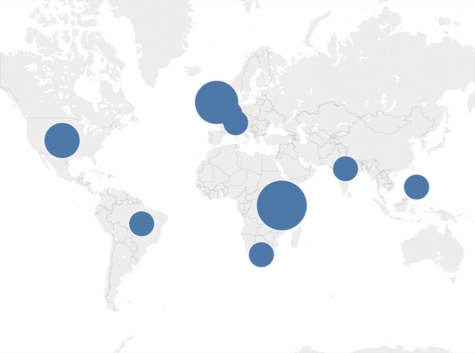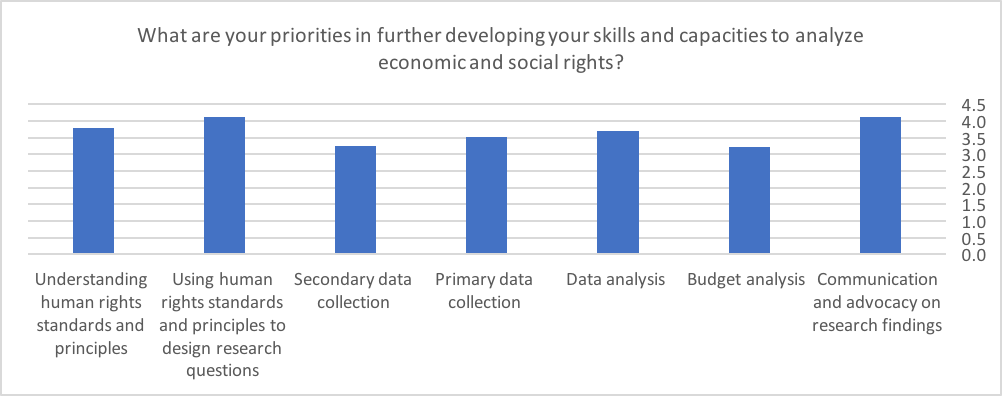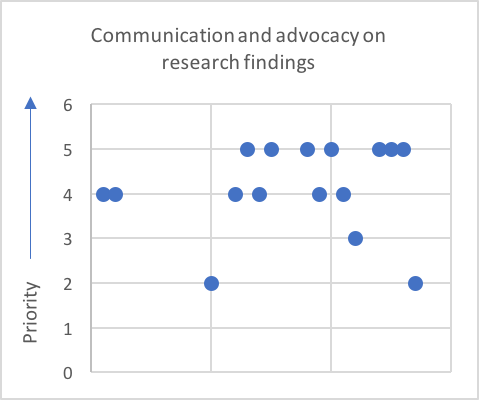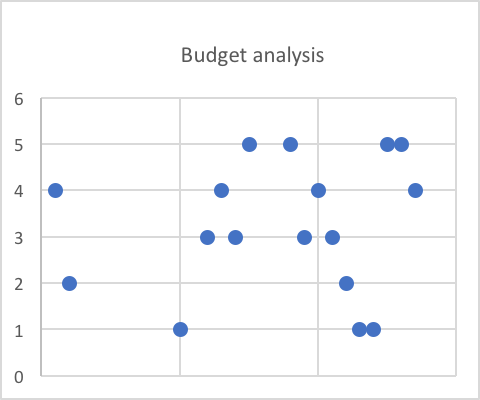August 6, 2018
By David Branigan and Allison Corkery
Results from the OPERA House survey, recently shared with our partners and allies, have given us a clearer picture of who is using OPERA, CESR’s economic, social and cultural rights monitoring framework, and how it is being used. Thank you! The results also revealed challenges in applying OPERA, and suggested how best to move forward with developing new OPERA learning tools and resources that better respond to users’ needs.
No one type of OPERA user and no uniform application of OPERA
Of the 20 responses we received from around the world, the majority were from human rights activists working for national NGOs, while others came from grassroots human rights defenders, international human rights advocates, academics and legal professionals.

Nearly half of respondents learned about OPERA from a CESR training or presentation. But, surprisingly, 1 out of 5 respondents heard about OPERA from another organization. This highlights the benefits of fostering more “word of mouth” dissemination strategies for OPERA; e.g. national NGOs referring OPERA to local organizations.
One third had applied OPERA in their work, where it supported a diverse set of activities. Respondents used OPERA to develop indicators and metrics, set program priorities, plan projects and structure research on topics including taxation, the right to food, the allocation of resources for disability rights, adequate housing among Indigenous people, and the rights to water and sanitation.
Interestingly, some respondents noted that they focused more on certain steps of OPERA than others. This is something to explore further. As discussed below, it raises broader questions about how OPERA is adapted and applied to specific issues and contexts.
A systematic framework but a challenge to adapt
When queried about OPERA’s perceived strengths and weaknesses, we found clear parallels between respondents who had applied OPERA and those who had not yet done so.
Respondents agreed that OPERA’s strengths were in its standardized, comprehensive and evidence-driven nature. It was characterized as a “one-stop-shop” for economic, social and cultural rights (ESCR) monitoring, and as one of the only such frameworks to offer a systematic entry point for such purposes.
On weaknesses, OPERA was described as complex and technical, making it somewhat inaccessible for some. Respondents offered several constructive recommendations, such as simplifying its steps and breaking down how these steps can be practically applied.
Again, these responses raise the broader question: what does the actual act of applying OPERA look like and what types of support do partners and allies need to do it? This process of adapting the generic OPERA framework to fit an issue-specific context is one area where people feel the most unsure and in need of more support. More than half of respondents who hadn’t applied OPERA indicated that it was because of uncertainty about how OPERA applied to their area of work.
Knowledge and skill building needs are diverse, but practically oriented
Unsurprisingly, our diverse set of respondents indicated a wide range of priorities for building knowledge and skills regarding OPERA and its related methodological tools. Respondents found value in all of the skill-building areas identified in the survey, arriving at relative consensus on the importance of skills such as developing indicators and metrics, analyzing budgets, setting program priorities, structuring research and planning communications and advocacy.

However, as the scatterplots below illustrate (each dot representing an answer), the distribution of priorities was wide ranging.


There was also a wide range of preferences in the characteristics respondents considered priorities for potential tools and resources that teach OPERA. Although, there was an overarching emphasis on practical guidance. The most desired characteristics of a learning tool were ranked as follows:
- Provides templates and checklists that can guide a specific project
- Can be modified to facilitate training for others
- Is a comprehensive "all-in-one" guide
- Is divided into short modules
- Shares case studies
- Includes practice exercises and activities
What’s Next for OPERA?
Our research into the needs of our partners and allies regarding their application of OPERA in practice is still underway, but these early results will inform further iterations of OPERA resources and learning tools. Since we now have confirmation that users and potential users come from a diverse group of backgrounds with diverse needs, no doubt future skill-building support will reflect that variety.
We are currently undertaking in-depth interviews on the questions raised by the survey results with OPERA “users”, as well as those interested in applying OPERA. Through the interviews, we hope to gain deeper and more specific insights into the variables at play while applying OPERA, and the ways its application can be supported and strengthened. If you are interested in participating in an interview, please write to us at opera@cesr.org. Or, if you’d still like to complete a survey, you can do so here.
We look forward to keeping you updated and involved as this learning process moves forward, and as new insights emerge.
Related:
OPERA in Practice: case studies applying CESR's OPERA framework